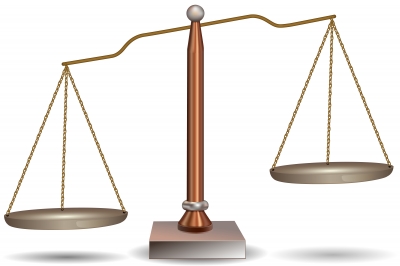
What is the Termination Option?
- CourthouseDirect.com Team
- 11/06/2013
- Real Estate
If you're currently looking to buy or sell a piece of real property, you probably have a lot on your mind. Real estate transfers are complicated affairs with multiple interested parties and way too many moving parts. Under these ...
READ MORE

How Do Adjustable Rate Mortgages Work?
- CourthouseDirect.com Team
- 11/04/2013
- Mortgage
An adjustable rate mortgage (ARM) is a mortgage that does not have a fixed interest rate that remains the same over the loan’s duration. Instead the interest rate fluctuates due to a predetermined trigger or follows a particular external ...
READ MORE

What Is a Future Interest?
- CourthouseDirect.com Team
- 11/01/2013
- Real Estate
A future interest, in property terms, is the reversion to you of ownership in property you deeded to someone else for a limited length of time. Your right to possession of the land is a future right as opposed to a present right.
READ MORE

What to Do When Your Tenant Breaks a Lease
- CourthouseDirect.com Team
- 10/30/2013
- Real Estate
As a landlord, you no doubt dread the prospect of a broken lease. Tenants who break leases put their former landlords on the hook for thousands of dollars in expected income and often leave behind damaged properties that can costs ...
READ MORE

Real Estate Investment Trusts 101: What are the Different Kinds of Trusts?
- CourthouseDirect.com Team
- 10/28/2013
- Real Estate
Also known as REITs, real estate investment trusts are investment vehicles that permit regular investors to benefit from income and capital gains associated with various types of real estate. Although the world of real estate investment ...
READ MORE

Why Choose an FHA Mortgage?
- CourthouseDirect.com Team
- 10/25/2013
- Mortgage
The Federal Housing Administration has long been a top source of low-cost mortgages for cash-strapped borrowers who face unique financial pressures. Established during the depths of the Great Depression, the agency has helped millions of ...
READ MORE

What is a Community Property State?
- CourthouseDirect.com Team
- 10/23/2013
- Real Estate
Property law is regulated by the state and is the basis for income taxation by the Federal government. Most states follow what is known as common law. In common law, property is solely owned by the person whose name is on the title unless ...
READ MORE

Creditors’ Rights Explained: What the Coverage Changes Mean to Title Insurance Creditors
During the real estate boom of the mid-2000s, many novel financial products made their debuts. While some of the era's more complicated mortgage-backed securities and derivatives ended up creating serious headaches for banks, mortgage ...
READ MORE

3 Things All Creditors Must Know About Loan Enforcement
- CourthouseDirect.com Team
- 10/11/2013
- Finance
When you provide loans or allow customers to purchase on credit, sooner or later you will have a debtor who stops paying on the loan. This doesn’t mean you must accept the loss. It also doesn’t mean there are no limits to what you can do ...
READ MORE

How is Proof of Ownership Established?
- CourthouseDirect.com Team
- 10/09/2013
- Real Estate
There are several reasons why proof of ownership of a particular piece of property must be established. Perhaps someone else is claiming ownership. Or maybe the owner died and an heir must claim it. It is even possible it becomes part of a ...
READ MORE
Subscribe to our updates
About CourthouseDirect.com
CourthouseDirect.com is committed to providing fast, accurate and affordable courthouse documents and research by using the potential of the Internet to cut costs and save time associated with obtaining public records and thereby eliminating inefficiencies and revolutionizing the delivery of courthouse information nationwide.


















